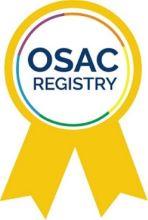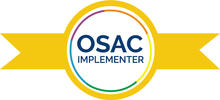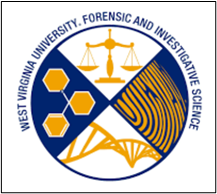May 2024
This Standards Bulletin from the Organization of Scientific Area Committees (OSAC) for Forensic Science provides a monthly update on forensic science standards moving through the OSAC Registry and standards development process, along with other OSAC news and standards-related information.
FORENSIC SCIENCE STANDARDS UPDATES
OSAC Registry Updates

The following four standards (two SDO published and two OSAC Proposed Standards) have been added to the OSAC Registry, effective May 7, 2024.
- ANSI/ASB Standard 153, Standard Practices for Proficiency Testing for Forensic Toxicology Laboratories and Breath Alcohol Programs. 1st Ed. 2023.
- ANSI/ASTM E3392-24, Standard Guide for Forensic Physical Fit Examination.
- Note: This SDO Published Standard will replace OSAC 2022-S-0015 on the OSAC Registry.
- OSAC 2022-N-0039, Standard for the Collection and Preservation of Entomological Evidence from a Terrestrial Environment
- OSAC 2022-S-0022, Standard for Disaster Victim Identification
Standards Open for Comment
SDO Published Standards Under Consideration for the OSAC Registry
The OSAC Registry approval process for published standards is used to review existing SDO published standards for technical quality and placement on the Registry. Please submit your comments by 11:59 p.m. ET on June 3, 2024, on whether the following SDO published standard should be included on the Registry:
- ANSI/ASB Standard 123, Standard for Routine Internal Evaluation of a Laboratory’s DNA Interpretation and Comparison Protocol. 2024. 1st. Ed. Submit your comments here.
OSAC Proposed Standards Under Consideration for the OSAC Registry
The following OSAC Proposed Standard is being considered for the OSAC Registry and is open for comment. To be considered, comments must be placed in the OSAC Comment Form and sent to comments [at] nist.gov (comments[at]nist[dot]gov) by 11:59 p.m. ET on June 3, 2024.
Standards Open for Comment at SDOs
Academy Standards Board (ASB):
- ASB Best Practice Recommendation 007-202x, Postmortem Impression Submission Strategy for Comprehensive Searches of Essential Automated Fingerprint Identification System (AFIS) Databases (revision of ANSI/ASB 007-2018). Comment deadline May 13, 2024.
- ASB Standard 039-202x, Standard for Internal Validation of Human Short Tandem Repeat Profiling on Capillary Electrophoresis Platforms (re-circulation). Comment deadline May 13, 2024.
- ASB Best Practice Recommendation 129-202x, Best Practice Recommendations for Internal Validation of Human Short Tandem Repeat Profiling on Capillary Electrophoresis Platforms (re-circulation). Comment deadline May 13, 2024.
- ASB Best Practice Recommendation 193, Best Practice Recommendations for Determining What Scene and Death Locations a Medicolegal Death Investigation Authority Responds to for an Investigation. 202x. 1st Ed. Comment deadline June 17, 2024.
- NOTE: This is OSAC 2022-N-0027, Medicolegal Death Investigation Response to Death Locations and Incident Scenes: Best Practice Recommendations, currently on the OSAC Registry.
- ASB Standard 196, Standard for the Documentation and Processing of Shooting Scenes. Comment deadline June 17, 2024.
- NOTE: This is OSAC 2021-N-0019, Standard Practice for the Documentation and Processing of Shooting Scenes, currently on the OSAC Registry.
ASTM International:
- ASTM WK88696-202x, Guide for Printing Method Effects on Facial Comparisons (new standard). Comment deadline May 20, 2024.
- ASTM WK88697-202x, Guide for Standard Guide for Scanning of Facial Images (new standard). Comment deadline May 20, 2024.
- ASTM E3148-202x, Guide for Postmortem Facial Image Capture (revision of ANSI/ASTM E3148-2018). Comment deadline May 20, 2024.
- ASTM WK72526-202x, Guide for Opinions on the Interpretation of Primer Gunshot Residue (pGSR) Analysis by Scanning Electron Microscopy/Energy Dispersive X-Ray Spectrometry (SEM/EDS) (new standard) Comment deadline June 17, 2024.
- ASTM WK72856-202x, Practice for the Collection and Preservation of Organic Gunshot Residue (OGSR) (new standard). Comment deadline June 17, 2024.
- NOTE: This is OSAC 2021-N-0009 currently on the OSAC Registry.
- ASTM WK73482-202x, Practice for Reporting Results and Opinions of Ignitable Liquids Analysis (new standard). Comment deadline June 17, 2024.
- ASTM WK73484-202x, Standard Practice for Reporting Results and Opinions of Explosives Analysis (new standard). Comment deadline June 17, 2024.
- ASTM WK78747-202x, Guide for Forensic Examination of Fibers (new standard). Comment deadline June 17, 2024.
- NOTE: This is OSAC 2022-S-0019 currently on the OSAC Registry.
- ASTM WK78748-202x, Practice for Forensic Fiber Training Program (new standard). Comment deadline June 17, 2024.
- NOTE: This is OSAC 2022-N-0018 currently on the OSAC Registry.
- ASTM WK78749-202x, Guide for Microspectrophotometry in Forensic Fiber Analysis (new standard). Comment deadline June 17, 2024.
- NOTE: This is OSAC 2022-S-0017 currently on the OSAC Registry.
- ASTM WK81724-202x, Classification for Ignitable Liquids Encountered in Fire Debris Analysis (new standard). Comment deadline June 17, 2024.
- ASTM WK84882-202x, Practice for Testimony for Forensic Science Practitioners (new standard). Comment deadline June 17, 2024.
- ASTM E1459-202x, Guide for Physical Evidence Labeling and Related Documentation (revision of ANSI/ASTM E1459-2013 (2018)). Comment deadline June 17, 2024.
- ASTM E2937-202x, Guide for Using Infrared Spectroscopy in Forensic Paint Examinations (revision of ANSI/ASTM E2937-2018). Comment deadline June 17, 2024.
- NOTE: ANSI/ASTM E2937-18 is currently on the OSAC Registry.
- ASTM E3085-202x, Guide for Fourier Transform Infrared Spectroscopy in Forensic Tape Examinations (revision of ANSI/ASTM E3085-2017). Comment deadline June 17, 2024.
- NOTE: ANSI/ASTM E3085-17 is currently on the OSAC Registry.
Facial Identification Scientific Working Group (FISWG) - Comment deadline May 17, 2024:
- Principles for Responsible Use of Facial Recognition Technology.
- Image Processing Techniques for Facial Image Comparison.
- Minimum Training Criteria When Using Facial Recognition Systems.
- Facial image Comparison Feature List for Morphological Analysis.
- Standard Guide for Postmortem Facial Image Capture.
Scientific Working Group on Digital Evidence (SWGDE) - Comment deadline May 11, 2024:
- 2024-03-08 SWGDE Legal and Scientific Support Related to the Admissibility of Image Examinations (23-I-001-1.0).
- 2024-03-07 SWGDE Video and Audio Redaction Guidelines (18-M-001-2.2).
- 2024-03-07 SWGDE Technical Overview of Digital Video Files (17-V-001-1.3).
- 2024-03-07 SWGDE Guidelines for the Use of Macro Photography in Forensic Science (24-P-001-1.0).
- 2024-03-07 SWGDE Considerations for Release of Synopsis Videos for Public Review (21-V-002-1.2).
- 2024-03-07 SWGDE Best Practices for Drone Forensics (21-F-002-1.2).
- 2024-03-07 SWGDE Best Practices for Digital Video Authentication (23-V-001-1.2).
- 2024-03-07 SWGDE Best Practice for Photo Documentation of Scars, Marks, and Tattoos (24-P-002-1.0).
Visit OSAC's Standards Open for Comment webpage to access these documents and for the instructions on how to submit your comments.
SDO Updates
New Published Standards
From the ASB:
- ANSI/ASB Standard 147, Standard for Analyzing Skeletal Trauma in Forensic Anthropology. 1st Ed. 2024.
From ASTM International:
- ANSI/ASTM E1459-2024, Guide for Physical Evidence Labeling and Related Documentation (revision of ANSI/ASTM E1459-2013 (2018)).
From SWGDE:
- 2024-03-22 SWGDE Best Practices for Digital Forensic Video Analysis (23-V-001-1.1)
- 2024-03-22 SWGDE Technical Notes on FFmpeg for Forensic Video Examinations (16-V-002-3.0).
- 2024-03-15 SWGDE Best Practices Apple MacOS Forensic Acquisition (23-F-005-1.0).
- 2024-03-15 SWGDE Best Practices for Acquiring Online Content (21-F-001-1.1).
- 2024-03-15 SWGDE Core Competencies for Digital Forensics (23-F-007-1.1).
- 2024-03-15 SWGDE Digital Image Compression and File Format Guidelines (16-M-001-3.0).
- 2024-03-15 SWGDE Guidelines & Recommendations for Training in Digital & Multimedia Evidence (10-Q-002-3.0).
- 2024-03-15 SWGDE Recommendations for Mobile Device Photography for Comparative Analysis (23-P-002-1.0).
- 2024-03-07 SWGDE Minimum Requirements for Testing Tools Used in Digital and Multimedia Forensics (18-Q-001-2.1).
- 2024-02-02 SWGDE Best Practices for Personnel Presenting Digital Evidence in Legal Proceedings (23-Q-001-1.1).
Work Proposals for New or Revised Standards
On April 19, 2024, a Project Initiation Notification System (PINS) was published on page 5 in the ANSI Standards Action. This will begin ASTM’s work on the following standards:
- ASTM WK90158-202x, New Practice for Standard Practice for Training in the Areas of Video Analysis, Image Analysis, and Photography (new standard). NOTE: This is OSAC 2023-N-0001, currently on the OSAC Registry.
On April 26, 2024, a Project Notification System (PINS) was published on page 4 in the ANSI Standards Action. This will begin ASTM’s work on the following standards:
- ASTM WK90190-202x, New Guide for Standard Guide for Forensic Photogrammetry (new standard). NOTE: This is OSAC 2021-S-0037, currently on the OSAC Registry.
Withdrawn Standards
The following standard has been withdrawn as an American National Standard:
- ANSI/ASTM E2154-2015a, Standard Practice for Separation and Concentration of Ignitable Liquid Residues from Fire Debris Samples by Passive Headspace Concentration with Solid Phase Microextraction (SPME).
IMPLEMENTATION IMPACTS & RESOURCES
Open Enrollment, It’s Not just for New Implementers

As we mentioned in our April Standards Bulletin, OSAC’s Open Enrollment will be returning in 2024 with the goal of collecting additional OSAC Registry standards implementation data. The 2024 Open Enrollment period will extend from July 1 through September 2. It will end just before National Forensic Science Week (September 14-21), during which time various communications will be distributed about implementation data collected during the open enrollment.
Although the primary focus of this endeavor is to add more implementers to the list, this is also a great opportunity for current OSAC Registry implementers to update their information.
How does open enrollment benefit your agency?
Implementing standards on the OSAC Registry and submitting a new or updated declaration form has many significant benefits! Here are just a few:
- Keep pace with the more than 150 other leading laboratories and organizations who have been recognized for embracing nationally recognized forensic science standards!
- Celebrate the benefits of improved communication among your staff and demonstrate to critical stakeholders another reason why they can depend on your agency for the highest quality service.
- Capitalize on your quality assurance achievements by joining the national cohort of standards implementers who regularly share updates on new tools and training on how to meet challenges of implementation and increase transparency of efforts toward compliance with new and existing standards.
In addition to acquiring new implementer data, updated information from the existing cohort of implementers will enable us to:
- Report more accurate information with respect to the numbers and types of standards that are being implemented.
- Enable better communication with implementers that are declaring incorporation of specific standards in their protocols.
- Better demonstrate the full extent of implementation to the entire criminal justice community and legislative bodies across the nation.
If your agency has already declared implementation of OSAC Registry standards, but has not updated their information for some time, please consider doing so during the 2024 open enrollment period.

Forensic Standards Implementation Mentor Program

Do you know of a Forensic Science Service Provider (FSSP) that is interested in implementing the standards on the OSAC Registry and does not know where to start? Pass along the Mentee Request Form and help them connect with a mentor.
Has your organization implemented standards on the OSAC Registry and is interested in becoming a mentor to others? Complete the Volunteer Mentor Form. When the program launches, you will be connected with a mentee in similar jurisdiction, size, and discipline(s).
Learn more about OSAC’s Forensic Science Standards Implementation Mentor Program and help make an impact on implementation.
Is your organization implementing standards on the OSAC Registry?
Complete OSAC’s Registry Implementation Declaration Form found on the OSAC website and send it to forensics [at] nist.gov (forensics[at]nist[dot]gov) to let us know. Your organization will subsequently be awarded an OSAC Registry Implementer Certificate.
Interested in learning more about implementation? Check out OSAC’s Implementation Recognition Factsheet
OSAC NEWS
OSAC FSSB Meeting: Public Feedback Session

The OSAC Forensic Science Standards Board (FSSB) will have a public feedback session available during its upcoming quarterly meeting. The purpose for this public session is to provide stakeholders with an opportunity to share feedback with the FSSB related to agenda items or matters within the FSSB’s authority. The FSSB will consider all feedback from the public, and remarks can be made by the submitter or by the OSAC Program Office on behalf of the submitter. The public session will take place virtually on Tuesday, June 11, 2024 from 1:30 - 2:00 p.m. ET.
If you wish to share feedback with the FSSB, please complete this form by June 3, 2024.
The schedules and agendas for upcoming FSSB meetings can be found on the FSSB Meetings webpage.
OSAC All Hands Meetings

OSAC members and guests participated in the OSAC All Hands Meetings on April 2-4, 2024 in Indianapolis, IN. Meeting attendees included the Chemistry: Toxicology/Seized Drugs, Digital/Multimedia, and Scene Examination SACs and their SCs. The Medicine SAC’s Forensic Odontology SC and FSSB Legal and Human Factors Task Groups also joined the meetings. The 165 attendees were very productive during the week working on consensus standards and other work products. Next stop, Jacksonville, Florida!
OSAC in The Forensic Nursing Journal

Recently, The Forensic Nursing Journal published, “The Purpose, Process, and Advancement of Forensic Nursing Standards.” This article segments forensic nursing standards, the OSAC structure, the composition of the OSAC Forensic Nursing Subcommittee, standards process, and standards implementation. A great big round of applause is extended to OSAC Forensic Nursing Subcommittee members Joyce P. Williams, DNP, RN, FAAFS, FAAN, and Nancy Downing, PhD, RN, FAAN for authoring this article and for their contributions to OSAC’s Forensic Nursing Subcommittee.
OSAC OUT & ABOUT

California Association of Criminalists (CAC) Seminar. On Friday, April 19th, Mark Stolorow, OSAC Program Office Contractor and Implementation Ambassador, presented “OSAC is 10 Years Old - What Will the Next Decade Bring for the CAC?” during the General Session of the California Association of Criminalists 138th Seminar in Los Angeles, CA. To date, California has 14 forensic science service providers who have submitted declaration forms and been awarded OSAC Registry Standards Implementer Certificates!

American Bar Association (ABA) Spring Meeting. The ABA Science & Technology Law Section’s Spring Meeting was held on April 18 in Bethesda, MD. During the event, JP Jones, OSAC Program Manager, and Jeff Kukucka, Associate Professor of Psychology at Towson University and OSAC member, presented “What every lawyer should know about forensic standards, and fighting the dark force of cognitive bias.”

Association of Forensic Quality Assurance Managers (AFQAM) Webinar Series. On Thursday, April 18th, AFQAM hosted a Brunch and Learn webinar titled “Continuing the Standards Implementation Journey.” This webinar provided implementation updates from the OSAC team and included presentations from Heather Greco (System Quality Manager, Texas State Department of Public Safety, Crime Laboratory Division) and Theresa DeAngelo (Quality Assurance/Safety Manager, Maryland Department of State Police, Forensic Sciences Division) on their respective standards implementation journeys.

International Association for Identification (IAI) California Division Conference. Steve Johnson, OSAC Standards Ambassador, presented at the 108th annual educational conference of the California State Division of the IAI in Bakersfield, CA. The California State Division is the oldest subdivision of the IAI, founded the year after the parent body’s establishment in 1915. It is also one of the largest divisions with over 700 active members. This interaction included an update on OSAC activities and information about the continued outreach effort specifically as it applies to non-traditional FSSPs.
OTHER FORENSIC SCIENCE NEWS & TRAINING
West Virginia University is Seeking Participants for a Survey on the Collection, Storage, Analysis and Interpretation of Gunshot Residue

The West Virginia University Forensic and Investigative Science research team is working on a federally-sponsored project that focuses on the improvement of collection, storage, analysis, and interpretation of gunshot residue (GSR) evidence in the investigation of firearm-related crimes. This survey requests general information from all participants regarding agency jurisdiction, frequency of firearm-related cases, and specific role activities.
Please take 5-15 minutes to complete the survey.
You may contact Dr. Tatiana Trejos (Tatiana.trejos [at] mail.wvu.edu (Tatiana[dot]trejos[at]mail[dot]wvu[dot]edu)) and Dr. Luis Arroyo (Luis.arroyo [at] mail.wvu.edu (Luis[dot]arroyo[at]mail[dot]wvu[dot]edu)), Associate Professors, Department of Forensic and Investigative Science, West Virginia University, with any questions.
ASB Call for Consensus Body Members

The ASB is currently accepting applications for a new ASB Forensic Nursing consensus body and for new members to the Bloodstain Pattern Analysis, Medicolegal Death Investigation, and Wildlife Forensics consensus bodies. Each Consensus Body consists of 7 to 25 members and creates and approves Forensic Standards, Best Practice Recommendations, Guidelines, and Technical Reports. The consensus bodies also consider comments, views, and objections to ballots and resolve all comments received in connection with the development of documents. ASB consensus bodies are open to all materially interested and affected individuals, companies, and organizations.
All applications must be completed by May 17, 2024.
Application for the ASB Forensic Nursing Consensus Body. The Forensic Nursing Consensus Body will draft standards related to the collection and storage of physical evidence from victims of sexual assault, sexual assault examinations, development and validation of new methods, and training and continuing education of practitioners.
Visit the ASB Website for additional information on the ASB and the Consensus Bodies.
AAFS Standards Resources and Training
As part of a cooperative agreement with NIST, the American Academy of Forensic Sciences (AAFS) is developing training, tools, and resources to enhance implementation efforts and broaden awareness of forensic science standards among communities of interest.
- Standards Factsheets provide a clear, concise, and easy way to understand the purpose of a specific standard, why it is needed, and the benefits of adoption. Standards Factsheets are available for 135+ standards on the OSAC Registry.
- Standards Checklists are a tool that forensic science service providers can use to track progress towards implementation, identify gaps or barriers to implementation, or document objective evidence of implementation or compliance with a standard. Checklists are available for 130+ standards on the OSAC Registry.
- Standards videos and webinars are available for free from AAFS Connect. Learn about the standards development process, standards development activities in various disciplines, and information about specific SDO published standards on the OSAC Registry.
UPCOMING EVENTS
- May 6 - 10: Mid-Atlantic Association of Forensic Scientists (MAAFS) Annual Meeting | Pittsburgh, PA. Members of OSAC’s Human Forensic Biology Subcommittee will be giving the following two presentations at the MAAFS Meeting:
- Workshop – “Understanding and Implementation of the Standard for Interpreting, Comparing and Reporting DNA Test Results Associated with Failed Controls and Contamination Events, ASB 175.” This standard is currently on the OSAC Registry as OSAC 2020-S-0004, Standard for Interpreting, Comparing and Reporting DNA Test Results Associated with Failed Controls and Contamination Events, and with ASB for publication.
- Oral Presentation – “New Standards and Best Practices in Biology/DNA.”
- May 13 - 15: Chesapeake Bay Division of the International Association for Identification (CBDIAI) Educational Conference | Ocean City, MD
- May 13 - 16: Scientific Working Group for Digital Evidence (SWGDE) Conference | Denver, CO
- May 14 - 16: 2024 OSAC All Hands Meeting | Jacksonville, FL
- Biology SAC and SCs
- Chemistry: Trace Evidence SAC and SCs
- Medicine SAC and SCs
- Physics/Pattern Interpretation SAC and SCs
- May 21 - 23: International Association of Chiefs of Police (IACP) Technology Conference| Charlotte, NC
- June 3-7: Facial Identification Scientific Working Group (FISWG)
- June 4 - 7: Florida International University (FIU) Global Forensic Science Symposium | Miami, FL or virtual
- June 10-11: 2024 FSSB Summer Quarterly Meeting | Herndon, VA
- June 24 - 27: National Sheriffs’ Association Annual Conference | Oklahoma City, OK
- June 25 - 28: Bode Annual Forensic DNA Conference | Atlanta, GA
CONNECT WITH OSAC
Follow us on Social Media
To stay up to date on the latest OSAC news, be sure to follow us on LinkedIn (#ForensicOSAC).
Contact Us
If you have feedback, questions, or want to learn more about how you can help strengthen forensic science through standards, contact us at forensics [at] nist.gov (forensics[at]nist[dot]gov).

